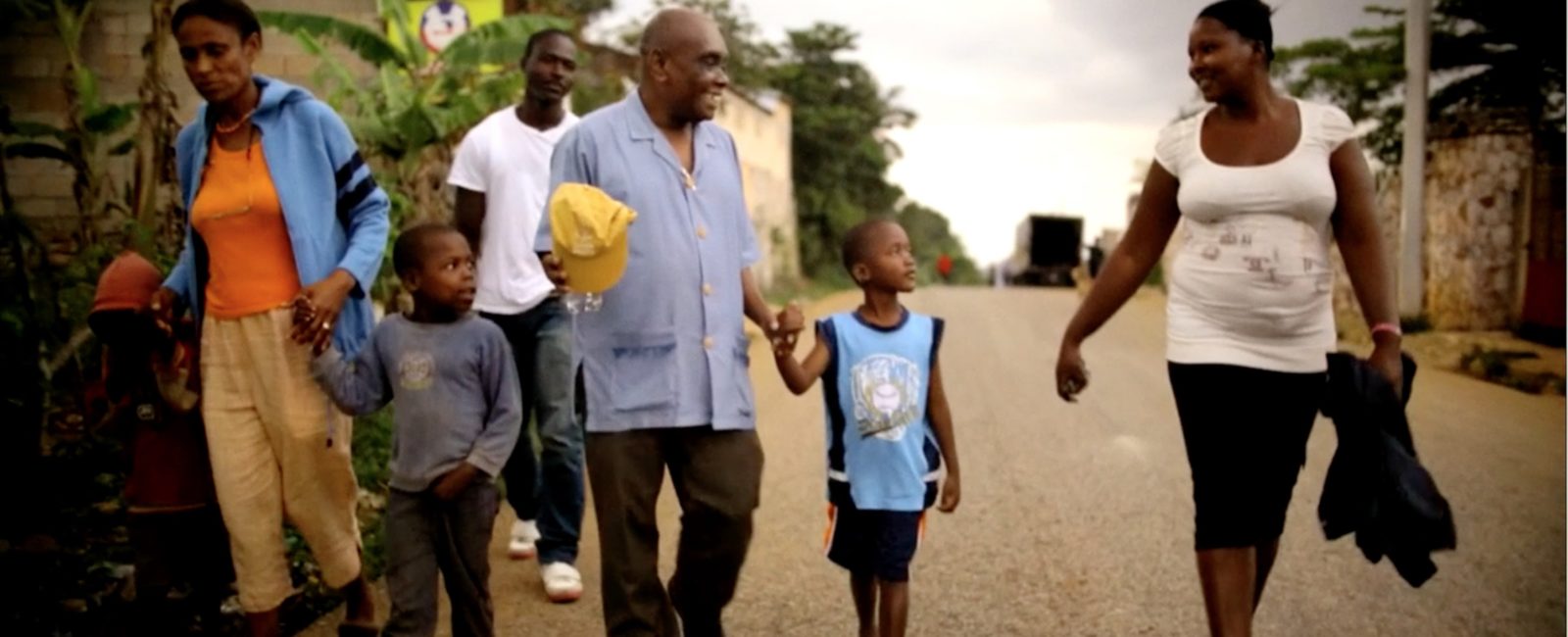
By John Black
When most Americans think of Haiti (if they think of Haiti) then thing about images they saw of the 2010 earthquake that ravaged the country, of celebrity telethons raising millions of dollars to help followed by news reports that the bulk of that money never made it to the people and organizations that really needed it.
But there is another side to the country and to its people, a side that is celebrated in Father Joseph, a fascinating new documentary written and directed by Jeff Kaufman and produced by his wife, Marcia Ross. Although the story told centers on the charismatic title character, Father Joseph Philippe, the film also explores the community he serves and the spirit of the people who call Fondwa home.
“I was at a human rights salon in Los Angeles when I first met Father Joseph,” Kaufman said in an interview with Color Magazine, and I was knocked out by the passion and the energy of the man. As I listened to his story, I realized it touched on so many of the areas in my life that I care about – community, grassroots politics, human rights, the human spirit – that I knew there was a story there for me to capture on film.”
It took a while – almost four years of researching, filming, writing and editing – but the end result is something truly something special; just reading a list of Father Joseph’s accomplishments can make even the most industrious of us feel like a bit of a slacker:
- Father Joseph founded Haiti’s largest micro-credit bank for the poor (Sevis Finansye Fonkoze) with a special mission of empowering peasant women through literacy classes, small business training, and community-building loans.
- He founded a 650-student K-14 school, and an orphanage
- He oversaw the building of a community center with a health clinic and a a radio station
- He started a a home construction effort, a clean water project and a reforestation program (planting thousands of trees),
- He established The University of Fondwa (Haiti’s first rural college).
Of course, although the preceding list says “he” did all the work, it is the people of Fondwa, under Father Joseph’s guidance, who got the work done. Not the government and not some foreign aid organization. The people of Fondwa did the work.
“Father Joseph was a man who didn’t just talk the talk; he walked the walk, and he expects you to walk along beside him,” Kaufman said. “He’s obviously a deeply religious man, but his notion of faith is very inclusive. He believes that anyone who is a good person and performs good deeds in this life, with follow the path to glory. He is also the kind of man who likes to test his faith. He doesn’t see the bad things in life and just say it is God’s will, just as he doesn’t sit back and think that God will provide everything the people need. He questions why bad things happen as he rolls up his sleeves and stats working to set them right.
The combination of a strong faith and a strong back has helped Father Joseph and his followers through some extremely challenging times. Almost everything Father Joseph built over 25 years was destroyed by the 2010 earthquake. A lot of the damage was repaired, only to be destroyed again when Hurricane Matthew struck the island just at the beginning of October. Through it all, Father Joseph keeps moving forward with an infectious sense of humor, an inspiring determination, and a deep, inclusive faith.
“You can’t help but love the man,” Kaufman said.
Father Jospeh can be seen on Netflix. A relief fund for the people of Fondwa has been established at raisinghaiti.org. According to director Joseph Kaufman, 100 percent of the funds raised through the site go directly to an umbrella group under the control of Father Joseph and the people of Fondwa.


